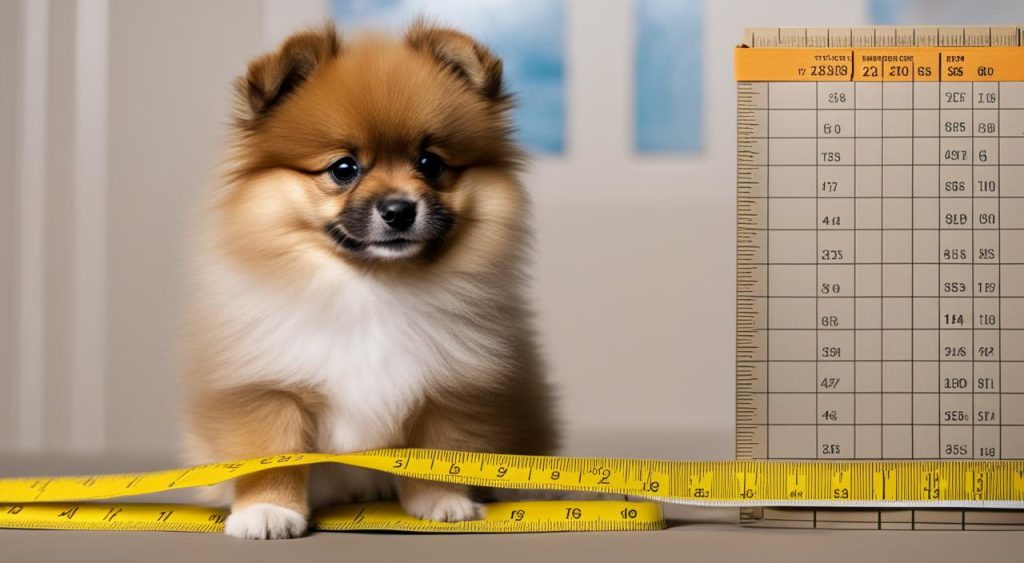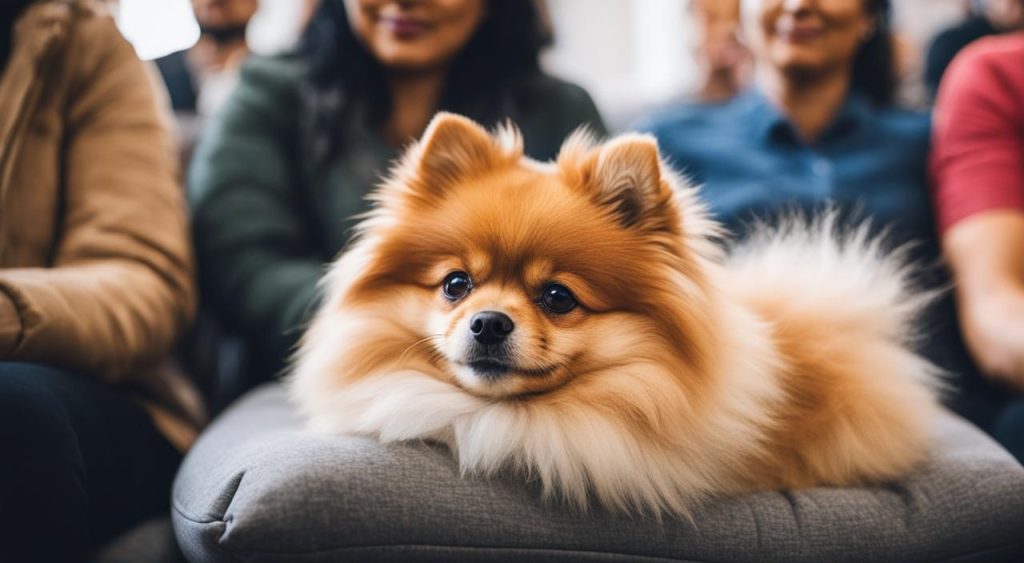Pomeranians, known for their small size and lively nature, are energetic and active dogs. However, despite their size, Pomeranians can experience tiredness and fatigue. Understanding the factors that contribute to their fatigue and managing their energy levels is important to ensure their overall well-being.
Factors such as excess activity, hypoglycemia, health issues, and environmental factors can all contribute to a Pomeranian feeling tired. It’s crucial to pay attention to changes in your Pomeranian’s energy levels as it may indicate an underlying health problem that needs to be addressed.
Key Takeaways:
- Pomeranians, despite their small size, can experience fatigue and tiredness.
- Factors such as excess activity, hypoglycemia, health issues, and environmental factors can contribute to Pomeranian fatigue.
- Monitoring your Pomeranian’s energy levels is crucial to detect potential health problems.
- Seeking veterinary advice is important if you notice persistent tiredness in your Pomeranian.
- Proper management of their energy levels and understanding their exercise and rest requirements is essential for their overall health and well-being.
Exercise Needs of Pomeranians
Pomeranians, like any other breed, require regular exercise to maintain their overall physical and mental well-being. It is important to understand the specific exercise needs of Pomeranian puppies, adult Pomeranians, and senior Pomeranians to ensure they lead a healthy and fulfilling life.
Puppies
Pomeranian puppies are bundles of energy and require appropriate exercise to prevent overexertion. Short bursts of activity, such as playtime or short walks, are beneficial for their growing bodies and help them burn off excess energy. However, it is crucial not to overdo it and provide plenty of time for rest and relaxation.
Adults
Adult Pomeranians should have regular exercise incorporated into their daily routine. A combination of walks and playtime is advisable to keep them physically active and mentally stimulated. It is recommended to mimic your own sleep schedule to help establish a routine for your Pomeranian. This not only ensures they get their required exercise but also helps prevent behavioral issues that may arise due to boredom or pent-up energy.
Seniors
As Pomeranians age, their exercise needs may decrease. However, it is essential to continue providing them with appropriate physical activity to maintain their muscle tone and joint health. Senior Pomeranians may benefit from shorter walks and lighter exercises, accompanied by extra rest breaks throughout the day. It’s important to monitor their energy levels and adjust their exercise routine accordingly.
When determining the exercise needs of your Pomeranian, consider their physical health, social skills, and environmental factors. Pomeranians are sensitive to heat and should be protected from excessive sun exposure. It is recommended to walk them during cooler times of the day to prevent heat-related issues. Additionally, any changes in the environment, such as a new house or a shift in pack dynamics, should be taken into account when designing their exercise routine.
Sleep Patterns of Pomeranians
Pomeranians, like all dogs, have specific sleep patterns that are essential for their overall well-being. Understanding the sleep needs of your Pomeranian at different stages of life is crucial for their health and happiness.
When it comes to Pomeranian puppies, sleep is a significant part of their daily routine. Newborn puppies sleep for the majority of the day to support their rapid growth and development. As they grow, Pomeranian puppies need around 18 to 20 hours of sleep per day. This extended sleep duration allows their bodies to recharge and recover.
As Pomeranians transition into adulthood, their sleep requirements change. Adult Pomeranians typically sleep through the night, but they also take several naps during the day. On average, adult Pomeranians need around 12 to 14 hours of sleep per day to maintain their energy levels and overall health.
Senior Pomeranians may need a bit more sleep and rest. They may take an extra nap during the day, and their sleep patterns might shift, with earlier bedtimes and shorter periods of wakefulness at night. It’s important to provide a comfortable and supportive sleeping area for your senior Pomeranian, ensuring they have a cozy bed that suits their specific needs.
In conclusion, ensuring that your Pomeranian gets sufficient sleep is vital for their physical and mental well-being. By understanding the sleep patterns of Pomeranians at different stages of life, providing a comfortable sleeping environment, and addressing any potential health issues, you can help ensure that your furry friend gets the rest they need to thrive.





